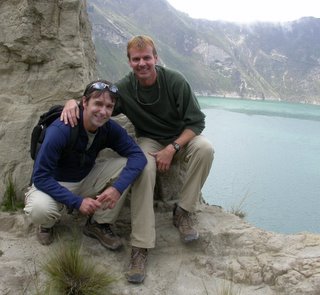Messianic politics and nukes
Religion and Churches - Separation of Church and State - Politics - God - Christianity - Islam - New York Times: "All of which served to confirm Hobbes’s iron law: Messianic theology eventually breeds messianic politics. The idea of redemption is among the most powerful forces shaping human existence in all those societies touched by the biblical tradition. It has inspired people to endure suffering, overcome suffering and inflict suffering on others. It has offered hope and inspiration in times of darkness; it has also added to the darkness by arousing unrealistic expectations and justifying those who spill blood to satisfy them. All the biblical religions cultivate the idea of redemption, and all fear its power to inflame minds and deafen them to the voice of reason. In the writings of these Weimar figures, we encounter what those orthodox traditions always dreaded: the translation of religious notions of apocalypse and redemption into a justification of political messianism, now under frightening modern conditions. It was as if nothing had changed since the 17th century, when Thomas Hobbes first sat down to write his “Leviathan.”"
***
A number of Muslim thinkers around the world have taken to promoting a “liberal” Islam. What they mean is an Islam more adapted to the demands of modern life, kinder in its treatment of women and children, more tolerant of other faiths, more open to dissent. These are brave people who have often suffered for their efforts, in prison or exile, as did their predecessors in the 19th century, of which there were many. But now as then, their efforts have been swept away by deeper theological currents they cannot master and perhaps do not even understand. The history of Protestant and Jewish liberal theology reveals the problem: the more a biblical faith is trimmed to fit the demands of the moment, the fewer reasons it gives believers for holding on to that faith in troubled times, when self-appointed guardians of theological purity offer more radical hope. Worse still, when such a faith is used to bestow theological sanctification on a single form of political life — even an attractive one like liberal democracy — the more it will be seen as collaborating with injustice when that political system fails. The dynamics of political theology seem to dictate that when liberalizing reformers try to conform to the present, they inspire a countervailing and far more passionate longing for redemption in the messianic future. That is what happened in Weimar Germany and is happening again in contemporary Islam.
***
A number of Muslim thinkers around the world have taken to promoting a “liberal” Islam. What they mean is an Islam more adapted to the demands of modern life, kinder in its treatment of women and children, more tolerant of other faiths, more open to dissent. These are brave people who have often suffered for their efforts, in prison or exile, as did their predecessors in the 19th century, of which there were many. But now as then, their efforts have been swept away by deeper theological currents they cannot master and perhaps do not even understand. The history of Protestant and Jewish liberal theology reveals the problem: the more a biblical faith is trimmed to fit the demands of the moment, the fewer reasons it gives believers for holding on to that faith in troubled times, when self-appointed guardians of theological purity offer more radical hope. Worse still, when such a faith is used to bestow theological sanctification on a single form of political life — even an attractive one like liberal democracy — the more it will be seen as collaborating with injustice when that political system fails. The dynamics of political theology seem to dictate that when liberalizing reformers try to conform to the present, they inspire a countervailing and far more passionate longing for redemption in the messianic future. That is what happened in Weimar Germany and is happening again in contemporary Islam.


<< Home